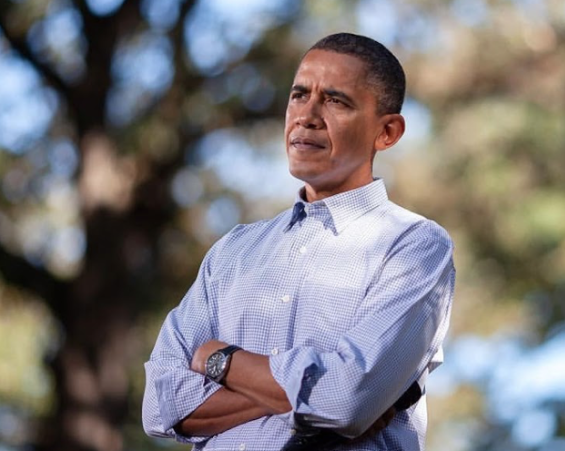In the latest interview of “The Breakfast Club,” Former President Barack Obama joined Charlamagne Tha God, DJ Envy, and Angela Yee to discuss his recently released memoir “A Promised Land” where he opened up about the marital struggles that he and Michelle Obama faced while he was in office and also to respond to critics who say he didn’t do enough for Black people while he was president.
In 44’s latest memoir, he discussed how the couple sought counseling before he went into the White House. He also shared with “The Breakfast Club,” that they never hit below the belt when disagreeing.
He said, “One thing Michelle and I both tell younger couples who are going through rough patches: ‘we were pretty good even when things were tough, we never loss basic respect for the other person. We never thought that person was a bad person.” He explained, “We never said things that would make it seem that you completely disrespect me. It was more, ‘I love you, Barack, but this is driving me crazy.’ or ‘I respect you, but…’ I think that’s what kept us ’cause we never doubted each other’s intentions.”
Barack added, “the basic fact that my view of Michelle is that she is a remarkable woman. Even if she drives me crazy sometimes, I never thought that there was anybody who I would rather be with.”
Later into the interview, Obama discussed the criticism he received while being president.
He said, “I think that anybody that goes into public life, they need to understand, you’re going to get criticized — ’cause that’s just the nature of it.” He added, “If you don’t want that, then you shouldn’t be in that business. The good news for me was that I was very confident about what I’ve done for Black folks because I have the statistics to prove it.”
Barack went on to share the successes of his administration, “By the time I left office, you had seen three million African Americans that have healthcare that didn’t have it before. You had seen the incarceration rate — the number of Black folks in prison — drop for the first time in years. You had seen the juvenile correction system, 30% fewer people in there. You had seen Black poverty to its lowest level since 1968. You had seen Black businesses rise. You had seen Black income go up.”
He added, “So I could just look at the data and say millions of Black folks were better off at the time I left office than when I came in.”
Barack also spoke specifically about Obamacare, admitting that he could understand how Black Americans could feel like there wasn’t a change if they are among the 10 million Americans who were left uninsured due to Republicans “blocking him from doing everything he wanted to do” with Obamacare. “So if you’re Black and you’re one of those 10 million who didn’t get healthcare, I can understand why they would be upset. How come things didn’t change,” he said.
Charlamagne then asked Barack to speak about his administration’s systemic changes to help Black Americans rise above generations of oppression.
He responded, “Black poverty dropped faster than everybody else. Black income went up more than a lot of other folks. The issue is, we didn’t go around advertising that because, once again, the goal here is to build coalitions where everybody is getting something, so they all feel like they have a stake in it.” He said, “But a lot of my policies were targeted toward people most in need. Those folks are disproportionately African American.”
Obama went on to share the specific policies his administration put in place to address systemic racism at the legal level as well as the successful outcomes of said policies, which proved you can “reduce crime, without expanding incarceration.” Those said policies included changed sentencing guidelines, which resulted in the federal prison population dropping, the crime rate dropping, and the overall success of their strategy.
He said, “The truth of the matter is, at the end of the day, there is no way in eight years to make up for 200 years,” He added, “The way I’ve been describing it, ’cause it’s very much how I understand the presidency now, you’re like a relay runner. You’re getting the baton from somebody else, and all you can do is run your stage of the race, and then you pass it on to the next person. And on either side, who you got it from and who you’re passing it to, they may not have the same priorities as you do. You know you’re not going to get everything done that you need to get done, but what you’ve got to do is do your best to get as much done as possible, and I think that’s what we did.”



